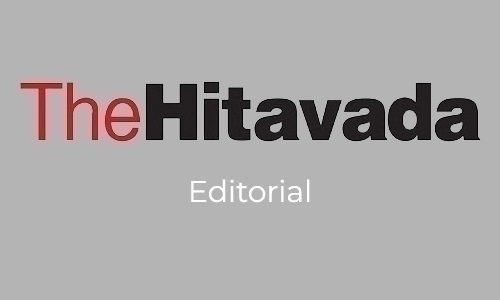PILL OF HOPE
| Date :20-Aug-2023 |

THE words of Dr. Tedros Ghebreyesus, Director General of World Health Organisation (WHO), followed by the statement of Mr. Narendra Modi, Prime Minister of India, on consecutive days at the WHO’s first-ever global summit on traditional medicine in Gandhinagar, send a common message -- traditional medicine is good and needs deeper integration in national health systems to deal with next health emergency.
Dr. Ghebreyesus’ statement is not an isolated observation. In the past few years, there is growing awareness about traditional medicines and healing systems from India. WHO has even set up a centre on Ayurveda at Jamnagar in Gujarat, and there is growing recognition to Yoga as a holistic fitness method the world over. Ayurveda has been transcending geographical boundaries to expand its acceptance beyond India and Nepal. Fed up with side-effects and modern pharmaceutical industries placing commercial interests above humanity’s larger interest, as seen during COVID-19 pandemic, the world is looking for traditional medicines that strike a balance between human beings and environment.
Against this backdrop, Dr. Ghebreyesus hailing traditional medicine systems is pertinent. India is not the only nation with traditional medicine. China also has its own history in this regard. It took the Western countries years to come to terms with recognising the efficiency of traditional medicines. In fact, smear campaigns were launched to discredit systems like Ayurveda and to portray it as something ‘orthodox’ and ‘unscientific’. The influence of such campaigns was so intense for years together that the practitioners of modern medicine in India also started criticising and looking down upon Ayurveda without even studying it. Even then, saner minds had appealed to them to not look at Ayurveda from the framework of so-called modern medicine.
During COVID-19 also, Ayurvedic treatment had come in under criticism. However, those who took it also got cured. Casualties were there even in modern medicine. Still, once the pandemic was over, common people returned to modern as well as Ayurvedic medicine systems.
In fact, now there appears to be a renewed focus of public attention on holistic thinking of medicines. Similarly, among researchers, there is renewed interest in traditional medicine, and integrating it with modern practices like tele-medicine too.
In this context, Mr. Modi’s appeal to G20 nations to facilitate ‘equitable availability’ of technology and ‘open innovations’ for public good becomes all the more important. For, these things do not carry any bias in favour of or against any system of medicine. Rather, it speaks of making available everything for public good. Such openness will indeed lead the comity of nations towards ensuring universal health coverage, and dealing effectively with the next health emergency, whichever it may be.
Thus, the world is poised to take a big leap of faith in healthcare, by restoring faith in traditional medicine and healing practices and also integrating those with modern-day systems. The resulting synthesis will hold a promise for not only making healthcare affordable and accessible to entire humanity, but also deepening understanding about heritage of different countries in this aspect. That will enable the world to take steps towards achieving the goal of ‘One Earth, One Health’.